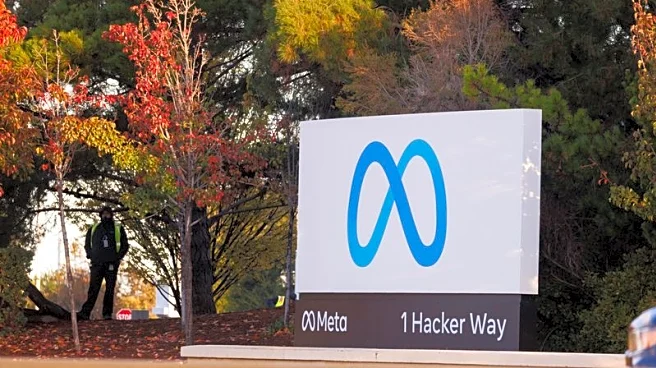What's Happening?
A recent report by Onvero, an equality and inclusion charity, reveals that 45% of UK employees believe diversity, equity, and inclusion (DEI) initiatives are overly focused on external image rather than
fostering internal change. The report, titled 'The State of Inclusion in the UK: From Ambition to Action,' highlights that 51% of employees feel their organizations prioritize regulatory compliance over genuine inclusion. The findings suggest that inclusive workplaces have higher employee retention rates, averaging 10.76 years compared to 7 years in less inclusive environments. Additionally, 85% of employees state that inclusive employers attract more diverse candidates, and 68% rate productivity as excellent in inclusive settings versus 27% in less inclusive ones. HR leaders are encouraged to engage in open dialogues with diverse colleagues to understand barriers and foster equitable workplaces.
Why It's Important?
The emphasis on external DEI initiatives over internal cultural change can hinder genuine progress in creating inclusive workplaces. Organizations that fail to embed DEI into their daily operations may struggle with employee retention and productivity. The report underscores the importance of visible diverse leadership and systemic change to attract and retain diverse talent. By shifting focus from compliance to cultivating genuine inclusion, organizations can enhance employee satisfaction and performance. This approach not only benefits employees but also strengthens the organization's reputation and competitiveness in attracting top talent.
What's Next?
HR leaders are advised to create spaces for open dialogue across generations, abilities, and backgrounds, ensuring policies reflect these conversations. The report suggests that HR should not own inclusion but enable it by embedding it into people systems, leadership behaviors, and decision-making processes. Organizations are encouraged to equip managers with practical coaching to turn inclusive behaviors into everyday habits. This shift from performative initiatives to leadership accountability is crucial for closing the gap between intention and impact.
Beyond the Headlines
The report highlights the ethical dimension of DEI initiatives, emphasizing the need for organizations to move beyond tokenism and compliance. By fostering genuine inclusion and belonging, organizations can address rising discrimination and alienation among employees. This cultural shift requires a fundamental mindset change, where inclusion becomes integral to business operations rather than a superficial badge.










